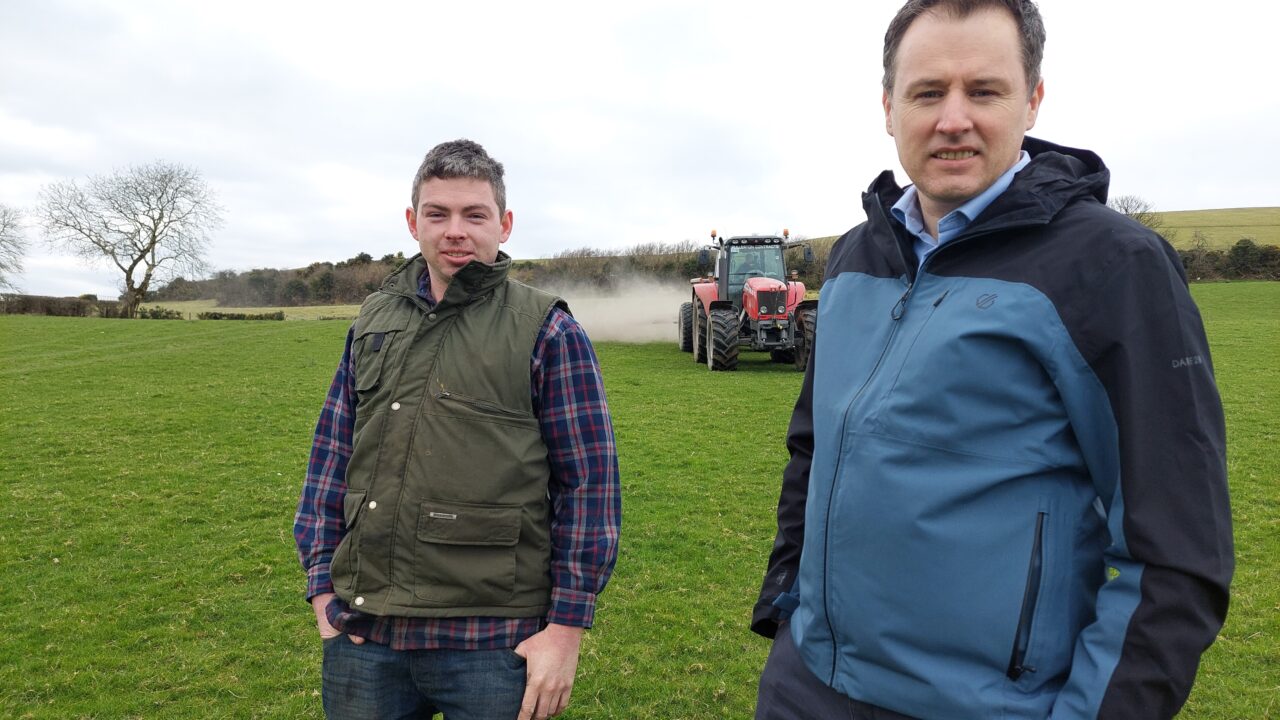A new National Liming Programme has been launched today (Wednesday, March 15) to help farmers “offset part of the expense of using lime”.
According to the Minister for Agriculture, Food and the Marine, the key objective of the programme is to support farmers to deal with input costs and also help them reduce the need for artificial fertilisers.
Minister McConalogue, who has travelled to New Zealand as part of the government’s St. Patrick’s Day Programme 2023, said soil fertility is the “foundation of a profitable and sustainable farm”.
“Lime is an important component of achieving balanced soil health, improving nutrient use efficiency and thereby reducing the requirements of chemical fertilisers and contributing to both climate and water targets.
“By having a balanced soil pH, we will reduce the need for artificial fertilisers which is good for the environment and good for the farmer’s pocket,” the minister added.
National Liming Programme
The new programme will provide financial support to farmers of €16/t of lime spread to participating farmers, to offset part of the cost of applying calcium ground limestone (CaCo3) or magnesium (dolomitic) ground limestone (CaMg (CO3)2).
In order to qualify for the payment there are a number of conditions that farmers must meet:
- A farmer or advisor must sign up to participate in the programme through the Department of Agriculture, Food and the Marine (DAFM) online service;
- They must indicate on applications the quantity of lime they intend to purchase and spread;
- Lime can only be purchased directly from quarries licenced by the DAFM to manufacture and market liming materials;
- Applicants that have submitted a Basic Payment scheme (BPS) application in 2022 and/or a Basic Income Support for Sustainability (BISS) application in 2023 are eligible to apply;
- Farmers that have a Nitrates Derogation in 2022 or 2023 and farmers with a grassland stocking rate above 170kg livestock manure nitrogen/ha prior to export in 2022 are not eligible to take part in the programme;
- Herd owners who are are participating or plan to participate in the 2023 Eco-Scheme practice relating to soil sampling and liming are not eligible to participate;
- The following land categories are also excluded from the programme: Commonage land, forestry, lands under Natura 2000, NHA/pNHA designation as well as Annex 1 grassland and environmentally sensitive permanent grassland;
- Ground limestone can only be applied in accordance with the lime requirement stated on up-to-date soil analysis reports (maximum of four years old from date of purchasing the lime).
According to DAFM – based on budget availability – payment will be made on a minimum of 10t of ground limestone and a maximum of 200t.
The department has outlined that high annual rainfall along with crop and livestock production can remove lime from soils.
It pointed to results from the Teagasc Soil Fertility Report in 2022 that indicate while soil fertility nationally has improved it is still estimated that up to “57% of soils require lime”.
Minister McConalogue added:
“Research has also indicated that increasing soil pH to optimum levels leads to a significant reduction in nitrous oxide (N2O) emissions while simultaneously increasing grass and other crop yields.
“Reducing our fertiliser use by ensuring correct PH in our soils is positive both from a climate and water perspective, but also makes sound economic sense for farmers.”
The National Liming Programme opens applications from today to April 20, 2023 and all claims for payment must be submitted by October 31, 2023.
